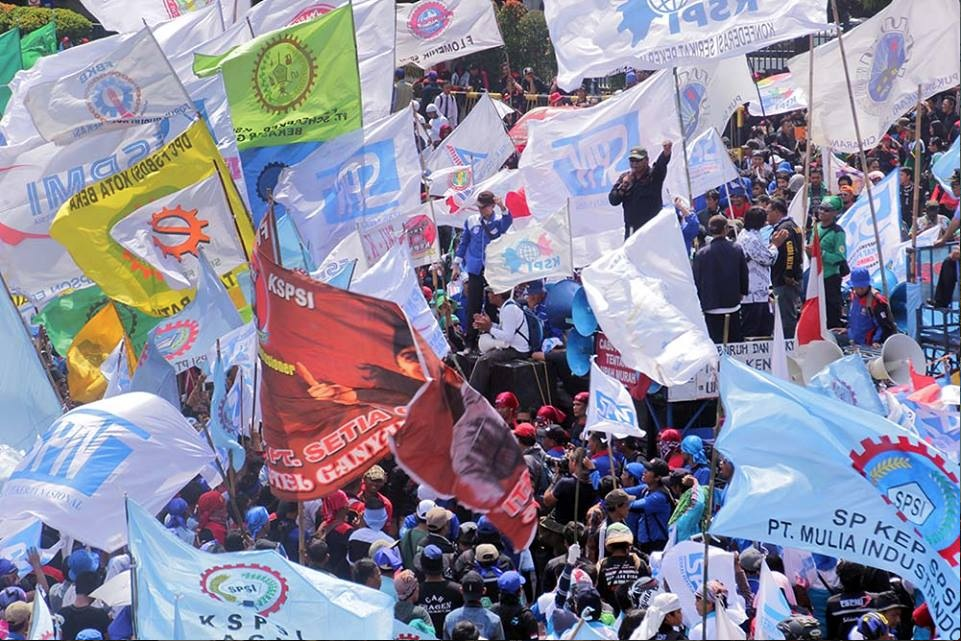Read this article in:
English
1 April, 2015The fight for living wages and sustainable industrial policy advance in Indonesia through two IndustriALL workshops.
Industry in Indonesia is characterized on the one hand by high-tech production involving skilled workers, and on the other low-tech extraction of raw materials. Production relies on imported materials while raw materials are exported.
At the workshop, Industriall Global Union affiliates identified the need for Indonesia to develop connecting industries such as processing and transportation as part of a comprehensive industrial development policy. Corruption is still a huge problem that needs to be addressed in Indonesia and this eats into resources intended for infrastructure improvement.
The Indonesian Government has developed a national development plan for 2011-2025, known as MP3EI, but the unions were not consulted and are largely unaware of it. The plan identifies Java as a centre for industry, while other regions focus on natural resources.
Affiliates questioned whether the plan centres too much manufacturing in Java at the expense of investment in other regions. A more equal distribution of industry and infrastructure is needed to drive more employment and improved living standards in every region. The plan is based on non-renewable energies rather than providing incentives towards alternative energy or energy-efficient technology and improving industry compliance with environmental responsibilities.
Affiliates concluded that there is a need to work in coalition with other unions and civil society. They committed to raising awareness of sustainable industrial policy and of the MP3EI plan among their members and the wider Indonesian trade union movement. Resolutions on sustainable industrial policy will be put to the congresses of federations and confederations. During the meeting a dedicated Facebook group was created and many posts have already been made.
Planning will continue at the next meeting of the IndustriALL Indonesia Council, which will take the lead on the issue.
Living wage
Minimum wages in Indonesia are set at regional level. Unions have managed to win large increases in minimum wages, but they still do not cover a worker’s basic needs. Inequality is increasing and there are large regional variations in wage levels: one region of Indonesia has the second lowest minimum wage in South East Asia, after Laos. The government is now proposing to only increase the minimum wage every 5 years with no cost of living increases in between.
Affiliates discussed how the minimum wage does not take account of company profits, which are high compared with wage increases. There was discussion of how sectoral bargaining can be used to make sure that more of the value created in global supply chains is retained in Indonesia towards a fairer distribution of corporate profit.
There are some examples of sectoral bargaining in Indonesia, but it is not widespread and the employer counterparts are not representative. An industry approach could help to equalize regional differences in wages and ensure that workers within the same company are paid the same wage, wherever they are located.
The unions agreed that there is value to the current minimum wage fixing mechanism since unions and employers have a voice in it, but it needs improvement. The quality and quantity of the components that make it up need to be improved and it should be properly enforced with sanctions for companies that pay below the minimum wage. Government action is also need to keep prices down after wage increases. The government proposal to only issue increases every 5 years must be rejected.
The workshop concluded with agreement on promoting joint actions and better coordination between unions on wage demands. Among these should be progress towards national sectoral wage agreements.
